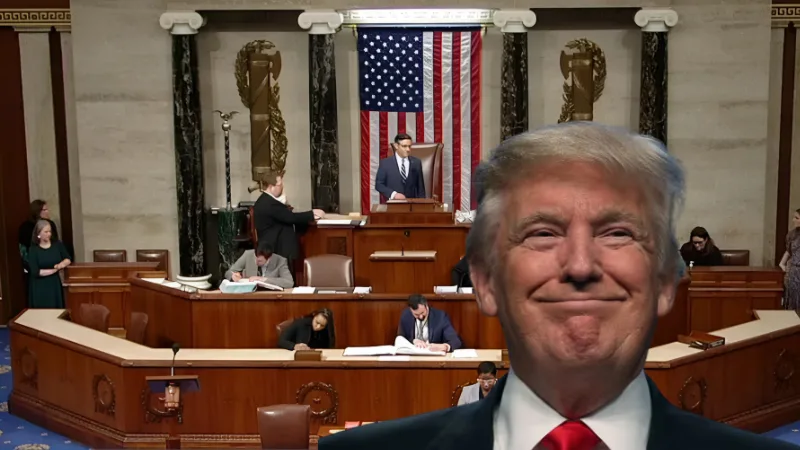In December 2024, news broke of a significant cybersecurity breach involving the U.S. Treasury Department. State-sponsored hackers linked to China successfully infiltrated sensitive systems, bypassing security measures to access unclassified yet potentially impactful documents. Here’s a detailed analysis of what happened, its implications, and how the U.S. responded.
The Breach: How Hackers Gained Access
The cyberattack was executed by exploiting a vulnerability in BeyondTrust, a third-party cybersecurity service provider. Hackers obtained a key that allowed them to bypass security protocols and remotely access Treasury workstations.
The breach was discovered on December 8, 2024, when BeyondTrust detected suspicious activity and alerted the Treasury Department. In response, the Department worked with the Cybersecurity and Infrastructure Security Agency (CISA) and the FBI to investigate and contain the breach.
Extent of the Attack
While the attack targeted unclassified systems, these systems hold valuable information related to financial policies and operations. Officials have not disclosed the specific data accessed, but experts warn that even unclassified documents can have serious implications if exploited.
The compromised systems were swiftly taken offline, and investigators believe the attackers no longer have active access. However, the incident underscores vulnerabilities in the digital infrastructure of government agencies, especially when third-party providers are involved.
China’s Response and U.S. Accusations
Chinese state-sponsored hackers have long been accused of engaging in cyber espionage. This latest incident fits a broader pattern of attacks attributed to China targeting U.S. government and critical infrastructure.
The Chinese government has denied any involvement. Foreign Ministry spokesperson Mao Ning stated, “China opposes all forms of cyberattacks and strongly condemns baseless accusations.” (The Times)
Implications of the Attack
1. Security Weaknesses in Third-Party Providers
Third-party providers like BeyondTrust often serve as weak points in cybersecurity frameworks. Hackers increasingly exploit these vulnerabilities to gain access to high-value targets.
2. Risks of Data Exposure
Although the breach involved unclassified systems, sensitive information can still be leveraged for political, economic, or strategic gain.
3. Geopolitical Tensions
The breach adds to growing tensions between the U.S. and China over trade, technology, and military issues. It also highlights the use of cyber operations as a tool in global power dynamics.
A Broader Pattern of Cyber Espionage
This attack is part of a series of high-profile breaches attributed to Chinese state-sponsored groups:
- OPM Breach (2015): Hackers stole sensitive information on millions of federal employees, including security clearance details.
- Microsoft Exchange Hack (2021): Chinese groups exploited vulnerabilities in Microsoft’s email servers, affecting government and private organizations worldwide.
- Critical Infrastructure Attacks (2024): Earlier this year, the U.S. Treasury Department sanctioned Chinese hackers for targeting U.S. critical infrastructure, highlighting a sustained effort to disrupt key sectors.
How the U.S. Is Responding
In the wake of this breach, the Treasury Department, CISA, and other federal agencies are:
- Conducting a comprehensive review of security protocols.
- Strengthening oversight of third-party providers.
- Enhancing incident response plans to mitigate future breaches.
Congress has also been briefed, with lawmakers calling for stricter cybersecurity measures and increased funding for federal agencies to bolster their defenses.
What Can Be Done to Prevent Future Breaches?
1. Strengthen Third-Party Security
Government agencies must enforce stringent security requirements for all third-party vendors and routinely audit their systems.
2. Advance Threat Detection Capabilities
Investing in advanced cybersecurity tools, such as AI-driven threat detection, can help identify and neutralize threats more effectively.
3. International Collaboration
The U.S. must work with allies to establish norms and agreements on state-sponsored cyber activities, holding violators accountable on a global stage.
Evolving Threats
The Treasury Department breach underscores the ever-evolving nature of cyber threats and the need for robust defenses. While the immediate impact of the attack may be contained, its implications for national security, economic stability, and U.S.-China relations are far-reaching.
Cybersecurity remains a critical frontier in global geopolitics. For individuals and organizations alike, this incident is a stark reminder of the importance of proactive measures to safeguard sensitive information.
You can learn more about this story here US Treasury says Chinese hackers stole documents in ‘major incident’





